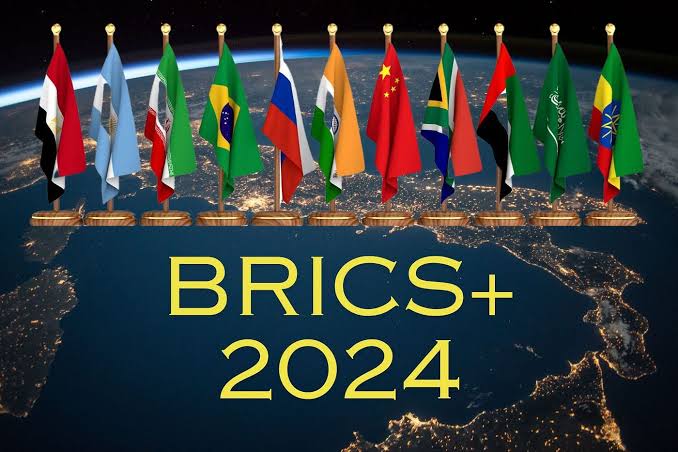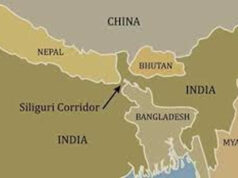BRICS+ emerging as a force for global change

By Anita Mathur
In recent years, the BRICS grouping-comprised of Brazil, Russia, India, China, and South Africa-has taken significant steps to enhance its global influence by creating the “BRICS+” cooperation track.
This initiative aims to expand its reach by incorporating more countries into its cooperative mechanisms. This shift from a coalition of five core nations to a broader alliance has not only amplified BRICS’s international impact but also established a new platform for emerging and developing nations to challenge the existing global order.
Notably, recent reports that countries like Cuba and Syria have applied for membership in BRICS highlight the increasing appeal of this grouping, as nations from the Global South seek to engage with an organization that genuinely represents their interests on the global stage.
The emergence of BRICS+ marks a pivotal moment in the evolving landscape of global governance. The current international order, primarily shaped by Western powers in the aftermath of World War II, is undergoing significant turbulence.
Economic, political, and institutional inequalities persist, particularly between the Global North and the Global South. This ongoing disparity has led to a palpable “disbalance” in the global power structure.
The BRICS countries, as representatives of emerging economies, are seeking to address this imbalance and secure a more just and equitable international system.
At the core of the BRICS+ agenda lies a profound ambition to challenge the inequitable distribution of power within global governance structures. While the economies of BRICS member states collectively represent a substantial portion of the global economy, their institutional power within key global bodies, such as the International Monetary Fund (IMF) and the World Bank, does not reflect their economic size.
This disparity exemplifies a larger strategy employed by Western powers, particularly the United States, to maintain their dominance in global decision-making processes.
For decades, developing countries have been side-lined in the structures of global governance, often acting as the “silent majority” in numerous international matters.
BRICS, through its expansion into BRICS+, provides a vital platform where these nations can coordinate and advocate for reforms within the global system.
By increasing representation for the Global South in multilateral institutions, BRICS+ aims to rectify historical power imbalances that have rendered many countries virtually powerless in shaping decisions regarding the global economy, climate policy, and geopolitical conflicts.
What sets BRICS+ apart from other international groupings is its unwavering commitment to representing the interests of developing nations.
Since its inception, BRICS has focused on advocating for the rights and needs of countries marginalized by a Western-dominated international system.
On critical issues such as climate change, food security, disease prevention, and IMF quota reforms, BRICS nations have consistently pushed for changes that would benefit the broader Global South.
The appeal of BRICS+ lies in its openness and inclusiveness. By providing a forum that prioritizes the concerns of developing countries, it has emerged as an attractive platform for nations across Africa, Latin America, and Asia.
The applications for membership from Cuba and Syria underscore the growing interest from nations that perceive BRICS+ as a vehicle for amplifying their voices on the global stage.
These countries, frequently excluded from core decision-making processes in institutions like the United Nations Security Council or the G7, are eager to join a coalition that is not primarily driven by Western interests.
While BRICS+ is characterized as a non-Western organization, it is essential to clarify that it does not function as an anti-Western mechanism.
The post-World War II international order, largely designed and led by Western powers, has indeed contributed to global stability and economic growth.
Rather than seeking to dismantle this order, BRICS+ aims to reform its unjust elements. The overarching goal is not to replace Western institutions but to transform them in ways that render the system more equitable and reflective of the contemporary global economic landscape.
A prime example of this reformative approach is the New Development Bank (NDB) established by BRICS. The NDB is not intended to replace the World Bank; instead, it aims to complement it.
By providing financing for infrastructure and sustainable development projects, the NDB offers an alternative for countries that may face challenges in accessing funding through traditional Western financial institutions.
This diversification of the global financial system is crucial for promoting greater economic stability and reducing over-reliance on Western-controlled financial systems.
Similarly, BRICS+ does not aspire to create a confrontational parallel system to challenge the Group of Seven (G7), the Western bloc that has long dominated global economic discussions.
While many BRICS nations have voiced dissatisfaction with the coercive policies and hegemonic tendencies exhibited by Western powers, particularly the United States, they are not seeking direct confrontation.
Instead, BRICS+ is positioning itself as a reform-oriented coalition capable of working alongside existing global institutions to drive necessary changes.
The future of BRICS+ is inherently tied to its ability to collaborate with the Global South in transforming global governance structures. This transformative process will undoubtedly face challenges, particularly as entrenched powers resist reforms that threaten their influence.
Nevertheless, the rise of BRICS+ reflects a broader trend in international relations: the increasing desire of developing nations to assert themselves on the world stage.
The transition from BRICS to BRICS+ is not merely an institutional development; it symbolizes a growing dissatisfaction with the existing international system. Developing countries, long marginalized in global governance, are now demanding a greater say in shaping the policies that affect their future.
BRICS+ provides a platform for these nations to collaborate, advocate for their interests, and drive meaningful reforms across various domains, including economic governance and climate policy.
BRICS+ represents a significant force in the shifting dynamics of the international order. By expanding its membership and amplifying the voices of the Global South, it not only challenges the status quo but also seeks to create a more equitable and inclusive global system.
The determination of BRICS+ countries to reform the global governance system is a powerful indicator of changing dynamics in international power relations.
Through collaboration, consultation, and shared benefits, BRICS+ possesses the potential to reshape global development processes and establish a fairer world for all.
In an increasingly multipolar world, the rise of BRICS+ signals a critical shift in the balance of power, emphasizing the need for a more representative and participatory approach to global governance.
As more countries join the BRICS+ framework, the potential for fostering equitable economic growth, sustainable development, and collaborative problem-solving increases.
This evolving coalition can serve as a catalyst for rethinking traditional power dynamics and advocating for a more just global order. By prioritizing the interests of developing nations, BRICS+ embodies the aspirations of many countries striving for greater agency in shaping their destinies within the global arena.
The expansion of BRICS into BRICS+ is not just a response to current global challenges; it is an assertion of the collective will of emerging economies to redefine their roles in the international community.
The growing dissatisfaction with the existing system and the quest for a more balanced representation signal a transformative moment in global governance.
As BRICS+ continues to evolve, its impact on the global stage will likely become increasingly pronounced, driving a broader movement toward a more equitable and inclusive world.




